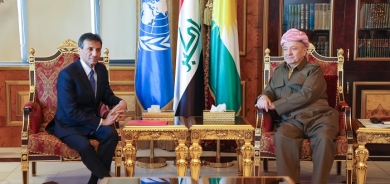Iranian MPs Vote to Review Controversial Hijab Law Behind Closed Doors

In a recent development, Iranian Members of Parliament (MPs) have made the decision to reevaluate a contentious hijab law in closed-door sessions, effectively preventing public debate on the matter. This law, referred to as the Hijab and Chastity Bill, proposes stringent penalties for women who do not adhere to the mandatory headscarf requirement in Iran.
The motivation behind the bill stems from widespread protests that emerged after the death of a woman in custody, allegedly due to her failure to wear the hijab correctly. In response, Parliament has approved the possibility of a three to five-year trial period for the bill. During this trial, MPs will have the authority to amend the legislation, potentially solidifying it as a permanent law.
The utilization of Article 85 of Iran's constitution was invoked by MPs to advance the legislation without the need for public deliberation. This article empowers a parliamentary committee to review bills without open discourse. During the vote, 175 members supported the motion, while 49 voted against it.
Mohammad Rashidi, an MP, indicated that the duration of the trial implementation will be determined through a subsequent vote. However, Gholamreza Nouri-Qezeljeh, another MP, cautioned against the potential pitfalls of this move, particularly in light of certain aspects of the bill that focus on criminalizing and penalizing hijab-related transgressions.
The hijab holds significant political symbolism in Iran, representing a cornerstone of the country's clerical establishment ideology. Nonetheless, a notable number of women have been openly challenging these regulations by either wearing their headscarves incorrectly or foregoing them altogether. This dissent is rooted in protest against the death of 22-year-old Mahsa Amini while in police custody, allegedly due to her violation of the strict hijab rules.
Mahsa Amini's tragic demise prompted sustained mass demonstrations across Iran, resulting in a temporary suspension of the morality police's controversial street patrols tasked with enforcing dress code compliance. However, these patrols resumed recently.
It is worth noting that this is not the first instance where Iran has employed Article 85 to push through legislation that curtails civil liberties. In August 2021, a similar move was made to review an internet bill criticized for its draconian measures, drawing condemnation from human rights organizations.
This situation underscores the complexities of cultural and political dynamics in Iran, where issues such as women's rights, individual freedoms, and religious mandates intersect in a complex and often contentious manner.














